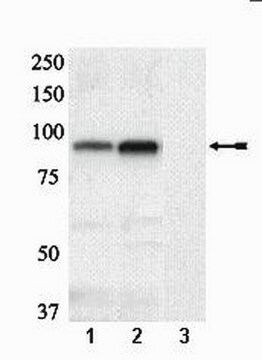All Photos(3)
About This Item
Linear Formula:
Mg(OH)2
CAS Number:
Molecular Weight:
58.32
EC Number:
MDL number:
UNSPSC Code:
12352302
PubChem Substance ID:
NACRES:
NA.55
Recommended Products
grade
reagent grade
Quality Level
assay
95%
form
powder
pH
9.5-10.5
mp
350 °C (lit.)
SMILES string
O[Mg]O
InChI
1S/Mg.2H2O/h;2*1H2/q+2;;/p-2
InChI key
VTHJTEIRLNZDEV-UHFFFAOYSA-L
Looking for similar products? Visit Product Comparison Guide
Related Categories
General description
Magnesium hydroxide is a low corrosive inorganic compound that is widely used as an acid- and halogen-free flame retardant and smoke suppressant in various polymeric matrices in the plastics industry. It is a magnesium oxide intermediate that can be used in refractory, water and wastewater treatment, fuel gas desulfurization, pulp and paper industry, and as a fertilizer additive.
Application
Magnesium hydroxide can be used as:
- A filler to prepare kenaf fiber-reinforced polymer composites.
- A pH-adjusting agent in the production of succinic acid.
Storage Class
13 - Non Combustible Solids
wgk_germany
nwg
flash_point_f
Not applicable
flash_point_c
Not applicable
Certificates of Analysis (COA)
Search for Certificates of Analysis (COA) by entering the products Lot/Batch Number. Lot and Batch Numbers can be found on a product’s label following the words ‘Lot’ or ‘Batch’.
Already Own This Product?
Find documentation for the products that you have recently purchased in the Document Library.
Customers Also Viewed
Flame retardant effects of magnesium hydroxide.
Rothon RN and Hornsby PR.
Polymer Degradation and Stability, 54(2), 383-385 (1996)
Flame retardant and mechanical properties of natural fibre-PP composites containing magnesium hydroxide.
Sain M, et al.
Polymer Degradation and Stability, 83(2), 363-367 (2004)
Magnesium hydroxide reinforced kenaf fibers/epoxy hybrid composites: Mechanical and thermomechanical properties
Saba N, et al.
Construction Building Materials, 201, 138-148 (2019)
Production of magnesium hydroxide from magnesium silicate for the purpose of CO2 mineralisation-Part 1: Application to Finnish serpentinite.
Nduagu E, et al.
Minerals Engineering, 30, 75-86 (2012)
Synthesis of magnesium hydroxide and its calcinates by a precipitation method with the use of magnesium sulfate and poly (ethylene glycols).
Pilarska A, et al.
Powder Technology, 235, 148-157 (2013)
Our team of scientists has experience in all areas of research including Life Science, Material Science, Chemical Synthesis, Chromatography, Analytical and many others.
Contact Technical Service








